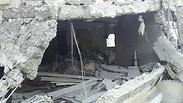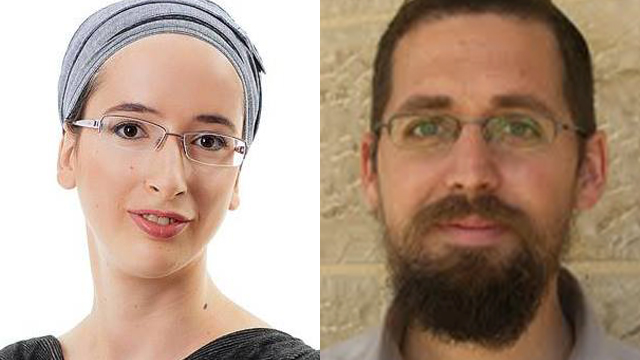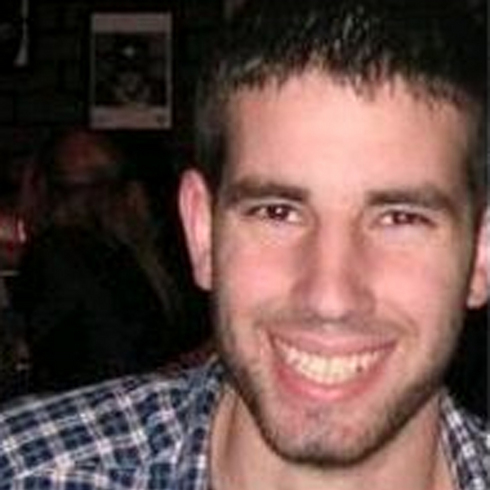
Supreme Court approves demolition of 5 attackers' homes
5 petitions against home destruction rejected, 1 accepted in case of perpetrator who lived in rented apartment near Ramallah.
The Supreme Court rejected on Thursday five petitions against the decision to demolish the homes of six Palestinians who participated in the terror attacks in which Naama and Eitam Henkin, Malachi Rosenfeld and Danny Gonen were murdered.
The only petition that was accepted regarded the terrorist Abdullah Ischak, one of Rosenfeld's killers, who lived in a rented apartment in Silwad, north of Ramallah. The justices ruled that there was not enough of a connection between him and the family who lives in the home.
Justices Hanan Melcer and Noam Solberg joined Chief Justice Miriam Naor in the decision.
Naor wrote in her opinion that, "as determined in the ruling, the purpose of the regulation is as a deterrent, not a punishment. This purpose has been recognized as proper.
"Demolishing homes is a harsh and serious step, mainly because it can hurt relatives of the terrorist who sometimes did not aid him and did not know of his plans…"
However, Noar added that, "Sometimes there is no alternative to using it. Such are the cases in the decrees before us, which deal with cruel terror attacks in which Israeli citizens were murdered in cold blood. The evidence presented to us made me satisfied that destroying homes of terrorists' families creates deterrence among terrorists."
The petitions were submitted to the court by the HaMoked human rights organization in the names of the terrorists' families. The court then suspended demolitions until the petitions could be considered.
Regarding the decision not to destroy Ischak's residence, Naor said, "I do not intend to determine that demolition cannot occur in every case that a terrorist is renting. My conclusion was limited to the concrete circumstances of the case, in which this measure cannot, given the surrounding circumstances, be seen as proportionate."
On the subject of an alleged double standard for Jews and Palestinians regarding the policy, Justice Solberg wrote, "The reason that Measure 119 is not used for Jews lies in the fact that the Jewish sector does not require the same environmental deterrence that is the purpose of home demolitions… However, it can't be denied: There are some cases of assault of arabs by Jews… but there are more differences than similarities in several respects."
While the court was debating the petitions, Prime Minister Benjamin Netanyahu was urging a quick decision on the matter. At a recent Knesset committee discussion, Netanyahu said that, "the court is not acting maliciously on the subject of demolishing terrorists' homes and it is does not work for the sake of Israel's enemies The government made a decision to demolish terrorists' homes and this should occur as close as possible to the incident in order to increase the deterrence. All we ask of the court is to decide faster, even if the decision ends up being opposed to our position."
The court criticized these statements. Justice Melcer argued that the government had previously delayed demolitions for months after they were approved – yet keeps blaming the court for delays.
Naor questioned why demolition orders were issued in October when they involved terror attacks committed in June. "It took you four months and then you gave the petitioners' counsel 48 hours," she said. "Is there a justification for this? Within a range of four months, shouldn't you allow a reasonable amount of time for a response?"












